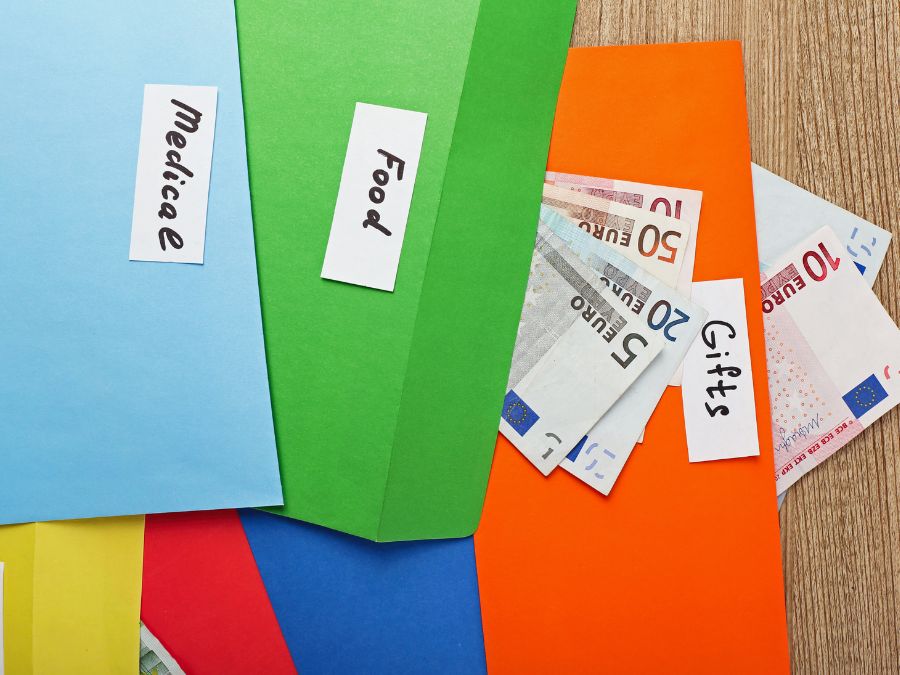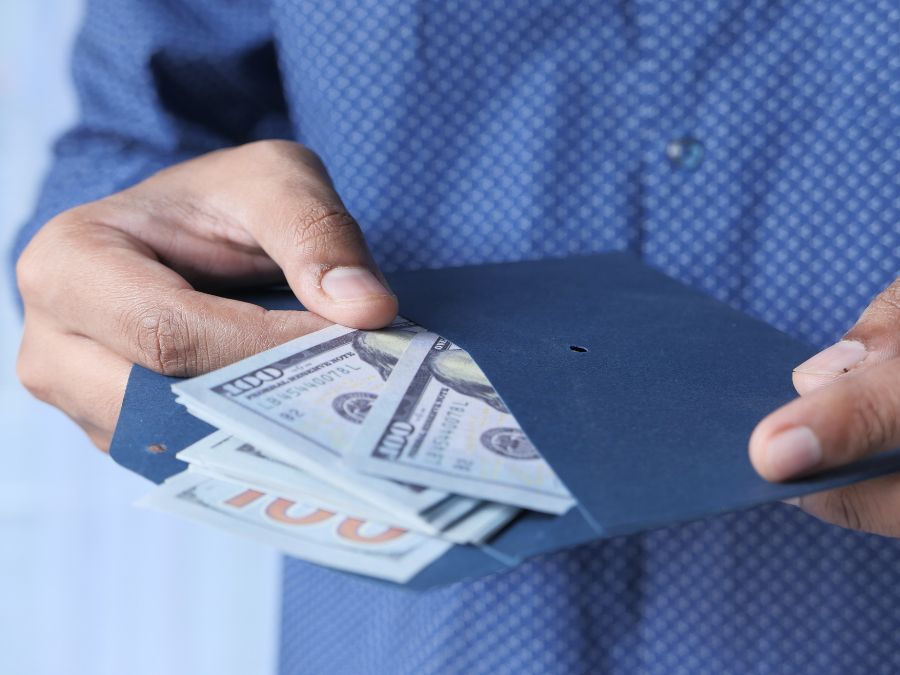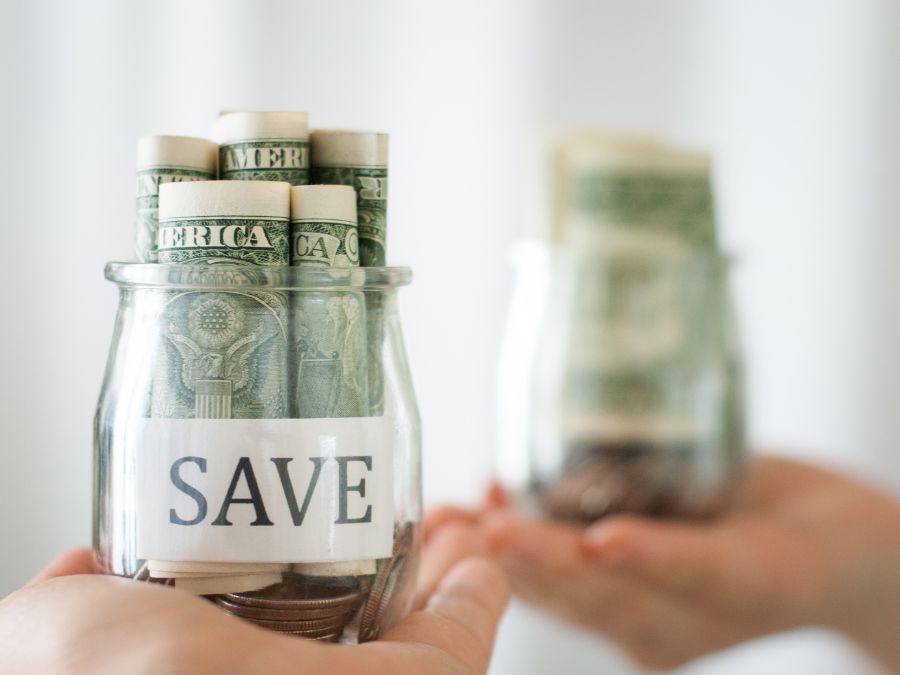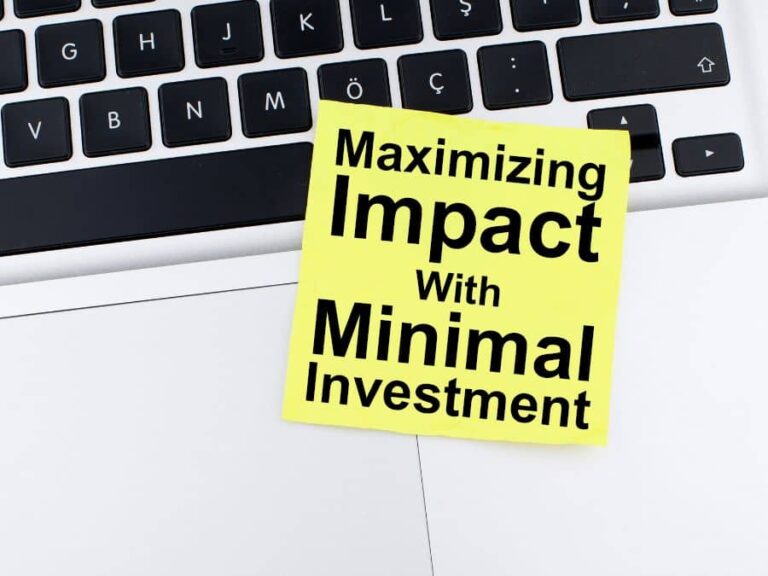Can I Live On Just Cash?
We all know the saying, “cash is king”. But does that really mean you can live on cash alone? Many of us have become so accustomed to using credit cards and digital payment methods that we rarely use cash. We may be asking ourselves – can I survive without plastic in my pocket? The answer isn’t as simple as ‘yes’ or ‘no’, but there are pros and cons to consider before deciding how you want to pay for your life. In this article, we’ll explore the advantages and disadvantages of living solely on cash payments. Get ready to learn if going completely cashless could work for you!
The idea of ditching credit cards and debit cards altogether might seem intimidating at first. After all, it involves changing up your existing financial habits – something many people don’t feel comfortable with doing. But despite the potential challenges, relying only on physical currency has its benefits too. For one thing, it makes budgeting easier since you’re forced to stay within certain limits when spending money. Additionally, paying exclusively with cash will help prevent overspending and unnecessary impulse purchases due to the fact that you can physically see how much money you have left in your wallet every time you make a purchase.
Ultimately, whether or not living off just cash is right for you depends largely on personal preference and lifestyle choices. If having control over your finances sounds appealing then transitioning away from electronic payments may be worth exploring further. Read on to learn more about what living solely from hard-earned money entails and decide whether it’s an option worth considering!

What Is The Cash-Only Lifestyle?
Living a cash-only lifestyle is like standing at the edge of an abyss; you can see it and feel its pull, but don’t quite understand what lies beneath. It’s a way to live your life that involves avoiding credit cards and other forms of debt in favor of paying for everything with physical money. Though it may seem intimidating at first, embracing this style of living comes with a wealth of potential benefits that could make all the difference in achieving financial freedom.
At its core, the cash-only lifestyle requires discipline and dedication, which means giving up certain convenience factors associated with using credit or debit cards. You have to plan ahead so you know exactly how much money to bring out when shopping or dining out – no more impulse buys! Not only does this help avoid overspending, but having cash on hand also improves negotiation power when making purchases from individual vendors who may be willing to lower prices if paid upfront in full.
Additionally, by not having access to lines of credit or relying solely on digital payments such as PayPal, one can better track spending habits since there’s less room for error when recording transactions manually into budget spreadsheets. Doing so will give insight into where funds are being allocated each month which can then inform decisions about increasing savings contributions or changing current consumption patterns. In short, going cash-only helps foster healthier financial practices while allowing greater control over personal finances.
Benefits Of Living On A Cash-Only Budget
Living on a cash-only budget can have many benefits. For starters, it helps people stay organized and save money. By using only cash for all purchases, there is no need to keep track of multiple credit cards and their associated debt levels. With this type of budgeting system, individuals are less likely to overspend since they physically see each purchase’s impact on their bank balance.
Another benefit of living on a cash-only lifestyle is increased security. Because there is no digital record of your transactions, identity theft becomes much more difficult. This makes it harder for criminals to gain access to financial information such as credit card numbers or banking details which could be used to commit fraud. Additionally, you don’t have to worry about overdraft fees or late payments since these types of issues don’t exist when using only cash for purchases.
Finally, choosing a cash-only lifestyle often leads to better self-control with spending habits and encourages thoughtful decision-making when shopping. Since most banks now offer online banking services, it’s easy to forget how much money we actually have in our account until the monthly statement arrives in the mail. When paying with physical currency, however, consumers are far more mindful of the amount they’re able to spend at any given time due to seeing exactly what leaves their wallet with each transaction made.

Potential Drawbacks Of Living On A Cash-Only Budget
Living on a cash-only budget can be immensely challenging for many people. It requires extreme discipline and diligence to stick with it, especially when there are so many temptations around us that urge us to spend beyond our means. Without the convenience of plastic cards or digital payments, we may find ourselves unable to buy what we need in certain situations. The lack of rewards points, discounts and other benefits associated with credit card usage could also leave us feeling shortchanged by going all-cash.
Keeping track of expenses is another issue. It’s much easier to keep an eye on purchases made online or through credit/debit cards than those made using cold hard cash. You don’t have easy access to records that show where your money has gone, making budgeting difficult – you’re left relying purely on memory (which isn’t always reliable!). If you do plan on creating a detailed record of all your spending, it would take up a considerable amount of time and effort to track down every single receipt from each purchase.
And then there’s the potential for theft or loss; carrying large amounts of cash on person leaves one vulnerable to pickpockets or mugging incidents – not exactly ideal! Furthermore, if you ever lose your wallet containing all your notes, there wouldn’t be any way to get them back either! All these drawbacks combine together make living solely off cash a risky proposition indeed – something worth keeping in mind as you consider whether this lifestyle choice is right for you.
Tips For Transitioning To A Cash-Only Budget
Making the transition from a cashless lifestyle to one that’s completely funded by cash can be challenging. But with some planning and discipline, living on just cash is possible. To get started, here are some tips for transitioning to a cash-only budget:
Start small – Taking too much of your income out in cash can be overwhelming. Start by setting aside a smaller percentage (10% or less) of your total income each month as an allowance. This will allow you to become accustomed to using only cash without having too much of it at once.
Create a spending plan – Once you’ve established how much money you’ll have available for expenses, create a spending plan to account for all transactions each month. Be sure to include items that may not immediately come to mind such as transportation costs, entertainment expenses, meals out, etc., and factor them into your monthly allowance accordingly.
Monitor progress – Keep track of your spending and compare it against what was allocated in your spending plan every few weeks or months. If necessary, adjust the amounts allotted for various categories until you feel comfortable managing your finances on just cash. By monitoring progress regularly, you’ll soon find yourself better equipped to handle any financial challenges related to living on just cash.
Strategies For Sticking To A Cash-Only Budget
Living on only cash can be a challenge for many, but some simple strategies can help you stick to your budget and make the most of each dollar. Firstly, starting by assessing your financial situation and determining how much money is available to spend on everyday expenses is important. This will help set realistic boundaries when shopping or making other purchases. Secondly, try setting up an envelope system where you allocate a certain amount of cash into different envelopes corresponding to various categories such as groceries, entertainment, and more. Allocating funds in this way allows you to track spending within those categories better than if using a credit card. Finally, it’s useful to keep all receipts as proof of purchase so that you’re aware of what was bought with cash rather than charged against any remaining balance. By doing so, it also becomes easier to review past transactions and identify potential areas for savings or adjustments moving forward. Taking these steps helps ensure that living on just cash does not become overwhelming or unmanageable from one month to the next.

How To Manage Unexpected Expenses On A Cash-Only Budget
Living on cash requires a lot of discipline and financial savvy, especially in unexpected situations. It can be difficult to manage short-term expenses when you don’t have access to credit cards or other forms of financing. Here are some tips for navigating these tricky scenarios:
- Track your spending: Knowing where your money is going is essential when budgeting with cash. Keep track of all the small purchases so you know exactly how much you’ve spent each month.
- Set aside emergency funds: Build up an emergency fund that will cover any surprise costs such as medical bills, car repairs, etc. This way, if something comes up unexpectedly, you won’t have to worry about finding the extra money from somewhere else.
- Prioritize needs over wants: When living on cash, it’s important to distinguish between what you need and what you want. Make sure that your basic necessities are taken care of first before splurging on anything luxuries.
- Utilize discounts & coupons: Taking advantage of deals and discounts can help stretch every dollar further. Look out for special offers online or at local shops, use coupon codes whenever possible, and shop around for the best prices!
- Invest in cheaper alternatives: Consider low-cost alternatives like generic brands or secondhand items instead of purchasing expensive products outright. Doing so can save a considerable amount of money which can go towards managing sudden expenses more easily.
By following these steps and staying mindful about our spending habits, we can create a cushion for ourselves should any unanticipated expenses pop up along the way without having to resort to borrowing money or using credit cards. Keeping tabs on our finances helps us stay ahead of potential disasters down the road while still enjoying life within our means!
How To Track Spending When You Live On Cash Only
Living on cash only can be a great way to stay organized and keep track of your finances. But it’s not as easy as just throwing all of your bills into a box and hoping for the best. You need to have some kind of system in place so that you know exactly where every penny is going, or else you risk overspending and running out of money quickly. Here are some tips for tracking spending when you live on cash:
First, create an envelope system. This means creating different envelopes for each expense category – such as groceries, gas, entertainment, etc. – then labeling them accordingly. When shopping, take out the amount of cash from the corresponding envelope before heading to the store. That way, you won’t buy more than you planned because you don’t have access to credit cards or electronic banking services.
Second, ensure there’s enough cushion in your budgeting system by setting aside extra funds each month for unexpected expenses like car repairs or medical bills. This will help prevent any financial surprises and ensure you always have enough money available when needed.
Finally, account for savings too! It may seem counterintuitive at first since most people think saving requires having access to a bank account but this isn’t true – even if living off cash only is your goal. Allocate yourself an allowance each month (just like with other expenses) which goes towards building up emergency funds or investing in stocks/bonds/mutual funds – whatever works best for you! By doing this regularly over time, you’ll be surprised at how quickly those small contributions add up and become significant investments capable of providing long-term financial security

How To Save Money On Essential Items With A Cash-Only Lifestyle
Living on just cash is becoming increasingly popular, as it can help you save money and budget wisely. Cash-only living requires discipline, but the rewards are worth it if done correctly. Here’s how to save money on essential items with a cash-only lifestyle:
1) Plan Ahead: Make sure to plan ahead for any upcoming purchases or bills that need to be paid in order to avoid running out of funds. Create a budget and stick to it by only taking out an amount of cash each week that will cover all your needs until the following week.
2) Shop Around: Compare prices at different stores before making a purchase so you can get the most bang for your buck. You may also want to look into discount places like thrift shops which have many quality items at discounted prices.
3) Avoid Impulse Buying: Do not take more than necessary when shopping so there isn’t extra pressure to spend what you don’t have. Try leaving credit cards at home if they’re too tempting; this way, you’ll only be able to buy what you have available in cash. Additionally, limit yourself to buying only what is absolutely essential during trips out – such as groceries or household supplies – instead of nonessential items like clothing or beauty products.
An important part of successfully living off cash is understanding where every penny goes, so make sure that tracking your expenses becomes second nature over time. This practice will enable you to become aware of possible areas where spending could be cut back without sacrificing the things that matter most in life. With some dedication and smart decision-making, going cash-only can provide great financial benefits and lead towards overall financial freedom!
Dealing With Unpredictable Expenses As Part Of The Cash-Only Lifestyle
Living on cash exclusively can be tricky, particularly when it comes to dealing with unexpected expenses. It’s like having a blindfolded tightrope walker try to traverse the Grand Canyon – you know they’re going to need luck and a strong sense of balance in order to make it across safely. Similarly, living off only cash means making sure that each month has enough funds available for those unpredictable costs that arise without warning.
One way to prepare is by creating an emergency fund specifically for such occasions as job loss or medical bills. Though this may sound counter-intuitive if one’s goal is saving money, having financial peace of mind should always come first. Establishing a separate account solely dedicated towards handling emergencies not only protects against unforeseen events but also keeps other necessary payments from being neglected due to lack of funds.
Another approach is setting aside extra money into the budget at regular intervals so that the shock of any sudden expenditures won’t be too overwhelming. This “rainy day” savings allows people who follow a cash-only lifestyle some flexibility should their plans suddenly change. Additionally, learning how to take advantage of discounts whenever possible helps ensure all needs are taken care of despite limited resources. Whether through price comparison shopping or seeking out coupon codes online, knowing where and how to search for deals will help minimize unnecessary spending while still attending to required purchases.
By taking these steps, individuals who choose a cash-only lifestyle have greater control over their finances and more confidence in their future prospects; no matter what obstacles they might face along the way

Long-Term Considerations For Living With Just Cash
Living on just cash can be a viable option in the short term, but it’s important to consider the long-term implications. When living with only cash, it’s necessary to budget carefully and not overspend. Without access to credit cards or other forms of borrowing, money needs to last until more income arrives. This means that big purchases must be planned ahead of time so enough money is available when needed.
Another consideration for those who are thinking about living without traditional banking products is privacy. Cash transactions don’t leave an electronic trail like bank transfers do, which makes them less traceable than other payment methods. That said, it also limits one’s ability to track spending habits or build up a credit history. There may also be tax implications if large amounts of cash are earned from side hustles or freelance work as opposed to regular employment.
Finally, taking care of emergency funds is essential when relying solely on cash payments. Having some savings available can help cover unexpected expenses and avoid having to borrow money at high interest rates should an emergency situation arise. Additionally, setting aside extra money in case of job loss or illness could provide valuable financial security down the line.
Conclusion
Living on a cash-only budget is certainly doable, but it requires dedication and discipline. The biggest challenge may be getting used to the lifestyle change at first, as well as learning how to track your spending without many of the helpful tools available when using credit or debit cards. However, once you adjust to living with just cash, you’ll likely find that it can bring freedom from debt and help keep you in control of your finances.
With some planning, an eye for savings opportunities, and creative solutions for unpredictable expenses, anyone can make this lifestyle work – though whether it works out long term depends on each person’s individual situation. Still, if you’re looking to simplify your life while also reducing financial stressors, adopting a cash-only mindset could be worth exploring – like finding a pot of gold at the end of the rainbow!
Ultimately, deciding whether or not to live off only cash should depend upon careful consideration of potential benefits and drawbacks. With proper preparation and commitment, even those who are intimidated by the idea may discover that transitioning into a completely cash lifestyle is less daunting than anticipated – giving them greater peace of mind about their money matters.







